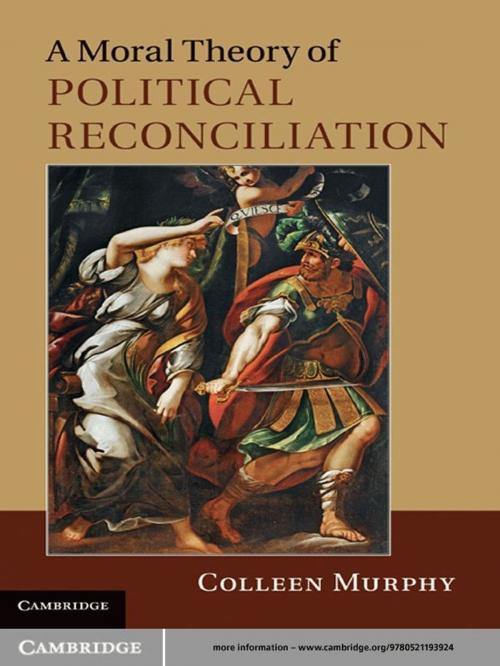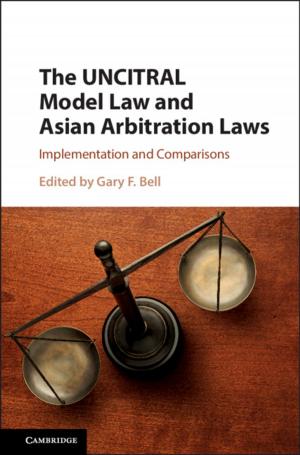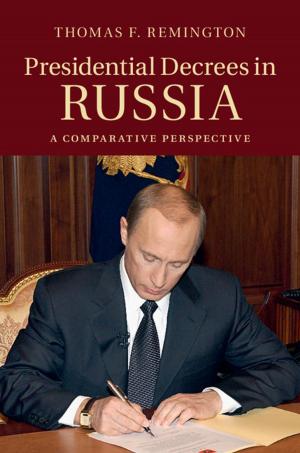A Moral Theory of Political Reconciliation
Nonfiction, Religion & Spirituality, Philosophy, Political, Social & Cultural Studies, Social Science| Author: | Professor Colleen Murphy | ISBN: | 9780511849251 |
| Publisher: | Cambridge University Press | Publication: | October 7, 2010 |
| Imprint: | Cambridge University Press | Language: | English |
| Author: | Professor Colleen Murphy |
| ISBN: | 9780511849251 |
| Publisher: | Cambridge University Press |
| Publication: | October 7, 2010 |
| Imprint: | Cambridge University Press |
| Language: | English |
Following extended periods of conflict or repression, political reconciliation is indispensable to the establishment or restoration of democratic relationships and critical to the pursuit of peacemaking globally. In this book, Colleen Murphy offers an innovative analysis of the moral problems plaguing political relationships under the strain of civil conflict and repression. Focusing on the unique moral damage that attends the deterioration of political relationships, Murphy identifies the precise kinds of repair and transformation that processes of political reconciliation ought to promote. Building on this analysis, she proposes a normative model of political relationships. A Moral Theory of Political Reconciliation delivers an original account of the failure and restoration of political relationships, which will be of interest to philosophers, social scientists, legal scholars, policy analysts, and all those who are interested in transitional justice, global politics, and democracy.
Following extended periods of conflict or repression, political reconciliation is indispensable to the establishment or restoration of democratic relationships and critical to the pursuit of peacemaking globally. In this book, Colleen Murphy offers an innovative analysis of the moral problems plaguing political relationships under the strain of civil conflict and repression. Focusing on the unique moral damage that attends the deterioration of political relationships, Murphy identifies the precise kinds of repair and transformation that processes of political reconciliation ought to promote. Building on this analysis, she proposes a normative model of political relationships. A Moral Theory of Political Reconciliation delivers an original account of the failure and restoration of political relationships, which will be of interest to philosophers, social scientists, legal scholars, policy analysts, and all those who are interested in transitional justice, global politics, and democracy.















